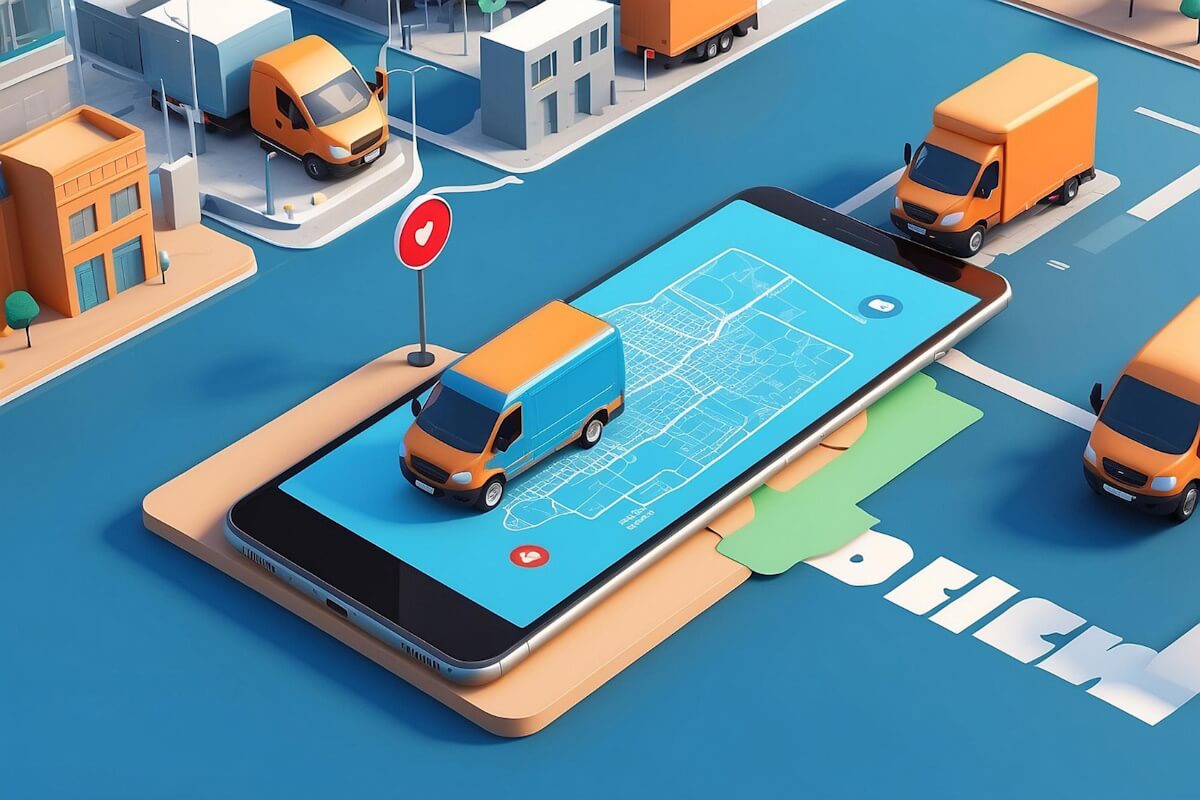In the fast-paced world of logistics, effective communication and coordination are crucial for the smooth running of operations. With the rise of mobile technology, logistics companies are turning to mobile apps to streamline their processes and enhance collaboration among team members. In this article, we will explore the benefits of using mobile apps in logistics and how they can improve communication and coordination within the industry.
Benefits of Mobile Apps in Logistics
Mobile apps offer numerous benefits to logistics companies, including:
- Real-Time Communication: Mobile apps enable logistics professionals to communicate in real time, addressing issues promptly during transportation or delivery.
- Improved Efficiency: Logistics companies can use mobile apps to track shipments, update inventory levels, and assign tasks effortlessly, leading to increased efficiency and productivity.
- Enhanced Visibility: Real-time visibility provided by mobile apps allows logistics teams to monitor progress and make informed decisions for timely delivery.
- Reduced Errors: Digitizing processes and automating tasks with mobile apps help minimize human errors, improving accuracy and reliability in logistics operations.
Features of Mobile Apps for Logistics
Key features of mobile apps for logistics include:
- GPS Tracking: GPS tracking capabilities enable logistics companies to monitor the exact location of shipments, vehicles, and drivers in real time.
- Task Assignment: Logistics managers can assign tasks, set deadlines, and track progress through mobile apps, ensuring effective coordination among team members.
- Document Management: Mobile apps allow logistics professionals to upload and share documents, streamlining the documentation process and reducing paperwork.
- Instant Messaging: In-app messaging features facilitate quick communication among team members, suppliers, and customers, aiding in decision-making and problem-solving.
Case Study: XYZ Logistics Company
XYZ Logistics Company utilized a mobile app solution to enhance communication and coordination within their operations. By leveraging the features of the mobile app, XYZ Logistics Company achieved significant improvements in their logistics processes:
- Real-Time Tracking: The GPS tracking feature enabled monitoring of vehicles and shipments, leading to better route planning and on-time deliveries.
- Task Assignment: Logistics managers assigned tasks through the mobile app, ensuring clarity on responsibilities and deadlines.
- Document Management: Digitizing the documentation process reduced the risk of lost paperwork and enhanced overall efficiency.
- Instant Messaging: In-app messaging facilitated quick communication, resolving issues and coordinating operations effectively.
Conclusion
In conclusion, mobile apps play a vital role in improving communication and coordination in logistics operations. By utilizing features such as real-time tracking, task assignment, document management, and instant messaging, logistics professionals can enhance efficiency, reduce errors, and gain better visibility into their operations. As the logistics industry evolves, mobile apps will continue to drive innovation and improve overall performance in the field.
Ready to optimize your logistics operations with a custom mobile app solution? Contact us today to discuss how we can help streamline your processes and enhance your team’s coordination.
FAQs:
What are the benefits of using mobile apps in logistics?
Mobile apps in logistics allow for real-time communication, improved efficiency, enhanced visibility, and reduced errors in operations.
What features do mobile apps for logistics typically offer?
Mobile apps for logistics often include GPS tracking, task assignment, document management, and instant messaging features to streamline operations.
How can mobile apps improve communication and coordination within logistics companies?
Mobile apps enable logistics professionals to communicate in real-time, assign tasks, track shipments, and share documents efficiently, leading to better coordination and collaboration among team members.
Can you provide a case study example of a logistics company using mobile apps for improved communication and coordination?
XYZ Logistics Company implemented a mobile app solution to enhance communication and coordination within their operations, leveraging features such as GPS tracking, task assignment, document management, and instant messaging.


